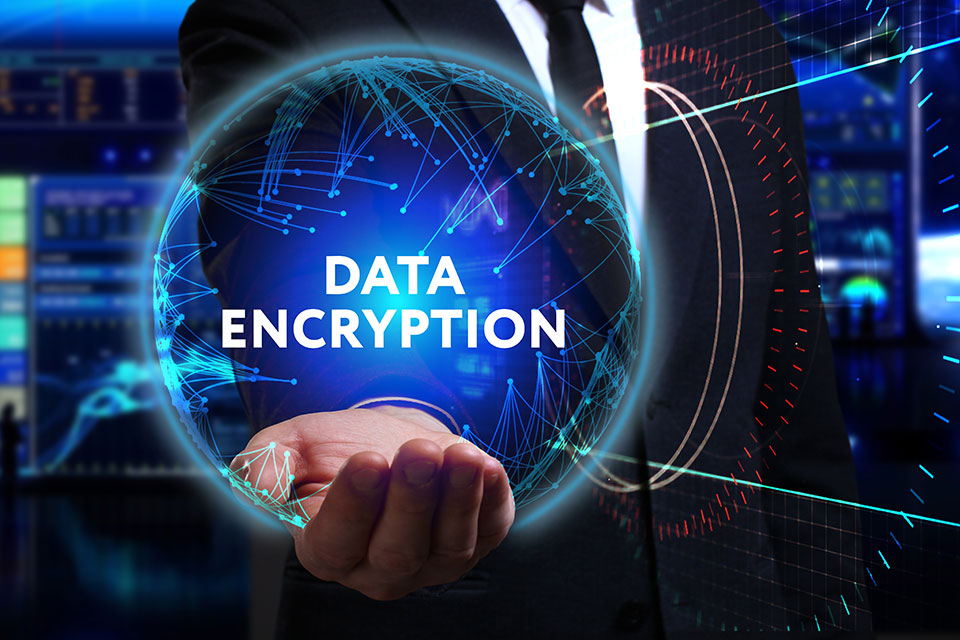10 Cybersecurity Tips for Recruiters / Recruiting Companies

Today, nearly all recruitment agencies act as the so-called mediators between employers and employees. They’re responsible for handling the tasks of identifying top talents among the job seekers, vetting candidates that do not possess the basic qualities for a certain position, and presenting the first-class potential workers to their clients.
According to G2, each corporate job offer attracts 250 resumes on average, after which the recruiters start analyzing the applications and interviewing the most relevant candidates for each post. To improve the quality of the recruitment process, more and more recruitment departments, as well as separate recruiting agencies, are now utilizing various recruitment software. It allows eliminating the time for reviewing the resumes, speaking to candidates remotely, running performance reports and statistics analysis, sharing the vacancies on multiple platforms, and more.
However, since the recruitment industry is going digital and is now strictly connected with Internet performance, it becomes even more critical to mind the cybersecurity measures of the recruiting companies. In this article, we’ll present the top 10 cybersecurity tips to enhance the security of the important data for recruiting.
Let’s dive in!
Best Cybersecurity Practices for Recruiters to Follow
To start with, recruiting companies deal with tons of different information every day, from their company’s internal data to the information about their clients’ and vacancies-related details and, of course, the personal information of job applicants. Being stored in computers and data storage, such valuable data can become a perfect manipulation tool the cybercriminals can make use of for their financial gain. For example, they can encrypt it for ransom, leak the personal information of recruiting staff, clients, or candidates online, or even transfer it to third parties for financial benefit.
Thus, the question arises: how can recruiting companies safeguard their data?
- Make Regular Backups of Critical Data
If your system has been attacked, the daily backups of the critical recruitment information to the cloud storage, external hard drives, or network-attached storage can ensure the data is accessible, so it won’t hurt the workflow of your company or agency. That’s exceptionally important for the recruiting staff, as they receive thousands of different job applications and run hundreds of reporting pages to find the first-class employees among the willing candidates.Additionally, you can save up lots of time, effort, and costs needed to restore the critical information – any document is available in just a few clicks!
Thus, by performing regular backups and data redundancy, you can greatly protect the company, its workers, and, of course, your clients as well!
- Use Data Encryption
Encryption is one of the latest cybersecurity trends your recruitment company should never pass up. This process is pretty straightforward, as it allows protecting the critical data by employing the unique codes that “scramble” the data and make it impossible to read. Thus, even if the attackers get past the firewall, they won’t make any use of the code found there.To access the encrypted information, recruiters can use the specific encryption key with an algorithm that transforms the ciphertext into readable data. And, the same technology is used to get the critical data unreadable again!
Such an easy yet efficient cybersecurity trick can surely enhance the vital information’s safe storage and usage, as well as minimize the risks of it being used by unauthorized users.
- Don’t Use Outdated Software
According to the research by the Institute for Internet Security at the Westphalian University of Applied Sciences, only 6% of around 5.6 million sites analyzed were running on fully updated software, while a shocking 47% of those had their entire software out of date.The importance of regularly updating the software library cannot be overestimated, as with every fresh update published, developers tried not only to fix the bugs and add some new features but also invested in the security of the application. So, with each app version update, it becomes more and more challenging for cybercrimes to intrude into the system or make use of its vulnerabilities to attack the machines of your recruitment teams.
- Use Firewalls
A firewall is a so-called barrier between your internal network and the Internet network that tracks any attempts of unauthorized access and blocks suspicious traffic. As a result, you can strengthen the first line of defense to ensure the computers and critical data stored there cannot be deleted, used, or leaked by hackers.For sure, it might not make your recruiters safe enough when browsing the Internet or reviewing the attachments of the application letters they’ve received, but still, it can filter out the most well-known standard tactics cybercrimes can use when hitting your network. With this said, the firewall is a standard software solution for any company’s must-use list.
- Choose the Good Cloud Service Provider for Data Storage
Overall, the cloud service is one of the most effective ways to enhance the development of your recruitment company. First of all, it benefits workflow flexibility, as the recruiters can transfer or exchange the data they need in a fast yet secure way. Cloud storage is a great way to keep all the employees in the loop about the latest updates and provide access to up-to-date records and reports.What is more, in pandemic times it can be the key tool to ensure remote data exchange. However, to ensure the in-cloud data cannot be accessed by third parties, it’s essential to train employees how to react to different sorts of cyberattacks and always get them informed about the potential security threats they should beware of.
- Set Access Levels for Employees With Different Responsibilities
The access level is another important factor your recruiting organization can use to ensure system security. Not only it enables complying with the local laws, but also helps to define the exact types of data your recruiters can access and work with. As a cybersecurity precaution, this trick may seem too plain at first but for most recruiting, as well as other organizations that deal with big data today – it still makes sense.In case if a cybercriminal has gained access via one of the employee accounts, he still cannot hurt the entire data stored on a server, so his actions are limited by the so-called “boundaries” or “permissions” you’ve primarily set. In case of a security breach, this strategy allows minimizing the data leaks and losses, which can significantly eliminate the costs, time, and resources for its final recovery.
- Conduct Regular Security Audits
With the hacking attacks becoming more complicated yet tricky, it becomes supercritical to implement the most reliable security precautions to minimize the system vulnerability. In fast-developing countries like the USA, cybersecurity is one of the major principles the agencies, companies, and large organizations have already made a strong focus on. In May 2021, President Joe Biden declared the cybersecurity executive order, according to which the organizations shall provide the security audits every 60 days after the date of the order.As for the recruitment agencies, such audits can provide extra information about IT security protection, detect the possible system vulnerabilities to be resolved, and which is more important, provide the details about their compliance assessment. According to FedTech, this can perform as a checklist that the organizations can use to validate their security policies and procedures.
- Collect and Analyze Logs
An even more valuable source of getting the updated system information is via log analysis. Basically, that’s a process of interpreting the computer records (logs), their detailed monitoring and analysis, that can benefit the system security of the organization.With the data security log analysis, it becomes much easier to track the network security performance, quickly identify and effectively respond to the various cyber threats.
Recruiters deal with tons of confidential data every day, so such a protection measure is necessary to meet compliance requirements for cyber security, such as NIST 800-137, PCI DSS V3.1, ISO/IEC 27002:2013, and others.
- Have a Robust Cybersecurity Strategy Developed by Professional
You should never underestimate the importance of having a relevant, planned algorithm of possible data breaches and the step-by-step recovery process written. In cases of any sort of data or system breach, your team should be always ready to stop this process, reinstate access and improve the security level of the entire system.Moreover, the security strategy of your recruitment internal system and equipment should also complete the regular security checkups by professional cyber experts to ensure the company’s system doesn’t have any vulnerabilities that hackers can easily make use of.
You should also remember that your recruiters need to perform thousands of different tasks on the Internet every day, so the professional cybersecurity audit shouldn’t be a one-off task to be done at the beginning of a recruiting agency establishment. That’s one of the most valuable actions to protect your network and data.
- Make Employees Aware About the Best Security Practices
Another side of the cybersecurity strategy is to get more people involved in it and learn how to react to any system breach quickly and accurately. For instance, each of your recruiters should be aware of the basic security actions to take once they’ve noticed any issues within their computer or database. According to the recent Stanford University cybersecurity research called “The Psychology of Human Error”, around 88% of today’s data breaches occur because of human error. The top reason for the security breach still remains the phishing scams (nearly 45% of respondents).Thus, having the recruiting teams trained to detect and react to any issue properly can significantly eliminate data breach cases.
As you can see, there are plenty of different methods on how recruiting companies can safeguard their data storage from cybercriminals: using firewalls and making regular backups, setting different access levels, and developing a robust cybersecurity strategy for a quick yet effective reaction to any sort of data breaches.
The more security-protecting measures you’ll take for your business, the smaller risks of being hurt by a cyber-attack your recruiting company will have. With having all those tips implemented to your recruiting company, agency, or department, you can be more than sure that none of your data will be accessed or leaked to hackers. Article contributed by Cyberlands.io – offensive & defensive security operations company.
Bring the best of the CEOWORLD magazine's global journalism to audiences in the United States and around the world. - Add CEOWORLD magazine to your Google News feed.
Follow CEOWORLD magazine headlines on: Google News, LinkedIn, Twitter, and Facebook.
Copyright 2025 The CEOWORLD magazine. All rights reserved. This material (and any extract from it) must not be copied, redistributed or placed on any website, without CEOWORLD magazine' prior written consent. For media queries, please contact: info@ceoworld.biz









